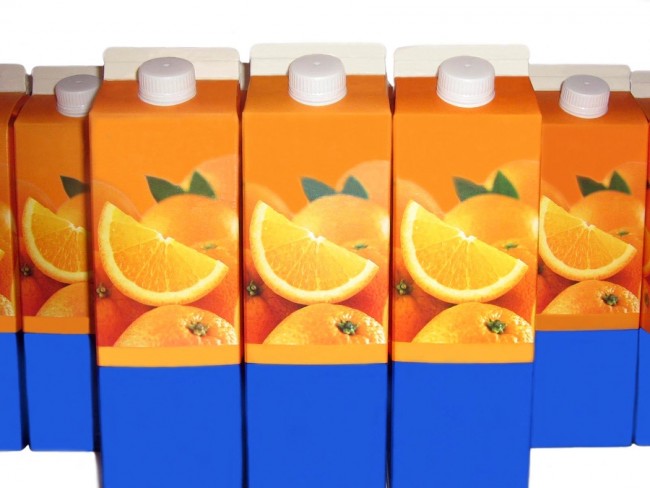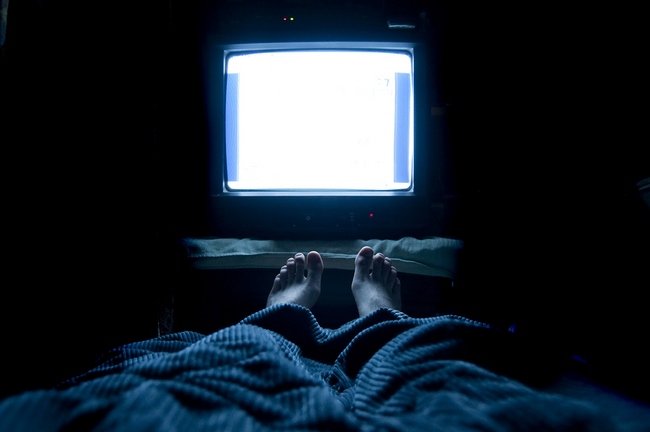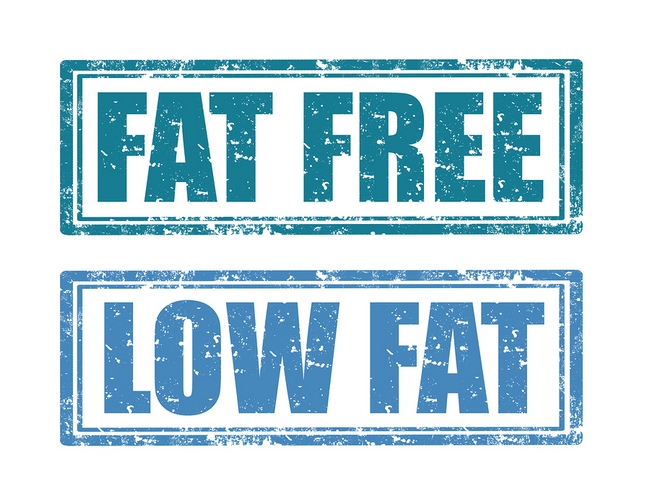- Make It Yourself Lavender Heart-Shaped Bath Bombs!
- 20 Things You Never Knew About “Down There”
- 12 Best Foods For Those Suffering From Arthritis Pain
- 12 Personal Hygiene Mistakes Almost Everyone Makes (Mom Never Told You About #4!)
- 15 Medicinal Plants And Herbs From The Cherokee People
- 12 Mind-Blowing Benefits Of Drinking Coconut Water During Pregnancy
- 12 Outstanding Winter Foods That Won’t Fatten You Up Like A Christmas Turkey
10 Everyday Mistakes Even Healthy People Make

Photo credit: bigstock.com
No matter how dedicated you are to living a healthy life, you could be making mistakes in your way of thinking. You can buy organic food, exercise 5 days a week, meditate each night, and still be making mistakes in both your eating habits and your lifestyle.
These might seem like little things, but they can add up to terrible consequences. Are you making any of the following mistakes?
1. Believing that Calories are Everything
We aren’t talking necessarily about those who are looking to lose weight. Other people who want to manage their weight and keep it under control do this. Although it’s true that we need to control our caloric intake, where we get our calories from matters just as much. Picture this: let’s assume you wanted to limit your caloric intake to 2,000 calories per day. You could eat a half a pizza and some coke and use those 2,000 calories up pretty fast, but would you consider that healthy? On the other hand, some people are so strict with their caloric intake that it borders on obsession. You’ve probably seen people like this when you go out; bringing out a little scale to measure their chicken breast to be sure it weighs no more than 4 ounces. This is an extreme way to live and not healthy mentally. Focus on getting good nutrition from whole, natural foods and the calories should take care of themselves.
2. Not Focusing on REAL, Unprocessed Foods
If you are buying foods from your local supermarket because it says “Natural” and/or “Healthy” in big letters on the label or box, you are most likely falling for a huge marketing scam. There are plenty of companies who don’t give a damn about whether their products are natural or healthy, but they certainly know that you do! So they know that if they put those words on the label, chances are good that you will buy them. You need to read labels carefully. Almost anything that is advertised as being “low fat” is probably full of sugar or artificial sweeteners. If all those labels are confusing, the best way to avoid all that is to get foods that need no labels, including fresh, organic fruits, nuts, seeds, and vegetables. Those are the real natural and healthy foods and you won’t need a label to tell you that!
Continue to Page 2

Photo credit: bigstock.com
3. Loading up on Acetaminophen
Too many people think that acetaminophen is completely harmless, so if a little will work, then a lot will work even better, won’t it? Many people who wouldn’t dream of taking other over the counter pain killers have no problem popping 12 or more acetaminophen tablets each day.
Did you know that exceeding the recommended dosage can cause liver damage or even liver failure? Excessive consumption of acetaminophen kills about 100 people each year.
Don’t mix acetaminophen and other over the counter remedies as most of them also contain acetaminophen and don’t exceed the recommended dosage. If you have pain that acetaminophen can’t handle, see a doctor, but don’t load up on pills.
4. Drinking Too Much Fruit Juice
Yes, fruit juice tastes great and it’s easy to chug down 16 ounces or more a couple times per day. Even if you are drinking fresh organic juice you squeezed at home, fruit juice is high in sugars that can cause your blood sugar to spike, making you hungry just a few hours later. Also, juice does not give your body that fiber that eating the fruit itself will. Fruit juice is also an extremely easy way to consume several hundred calories in a matter of minutes.
That’s not to say that fruit juice doesn’t have its place in a healthy diet. When consumed in moderation, juice is a great way to get vitamins and minerals and help the body to naturally detox itself. Try drinking no more than 8 ounces of fruit juice per day. If you love fruit, eat a few pieces of raw, organic fruit to get all the benefits of fiber that fruit has to offer.
Continue to Page 3

Photo credit: bigstock.com
5. Eating Out Often
Although eating out seems like a quick and simple solution, you cannot control what a restaurant puts in your food. Even ordering a salad sometimes isn’t good enough. They can be loaded with unhealthy fats, GMOs, and have as much as 1,000 calories! Some of the tricks most people use, ordering their food grilled instead of fried, taking home half of the meal to eat later, these can help but they still won’t make up for the fat, sugar, salt, and other ingredients in the food you ordered (read about 10 diet disasters to avoid when dining out). Make meal plans in advance and cooking at home from scratch is the best way to ensure that you are getting the healthiest foods and you will know exactly what s in them.
6. Depending on Supplements
Many, many people believe that if they take the right supplements it will make up for their fast food lunches or the four drinks they will have after lunch. Although supplements are a terrific way to help add to an already healthy diet, they won’t make up the difference for poor eating habits. In fact, some supplements can actually do you more harm than good. For example, calcium is best obtained through a natural diet. Consuming excessive quantities of calcium via pills can lead to kidney stones, however. Supplements are meant to be exactly as the name implies supplementation to your diet, not a replacement for healthy eating.
Continue to Page 4

Photo credit: bigstock.com
7. Not Getting Enough Sleep
Is your idea of a perfect day working or surfing the internet until midnight or later, getting up at 6AM, hitting the gym, grabbing a cup of coffee and rushing off to work? Would you go on even less sleep if you could? This isn’t smart. No matter how healthy you eat or how active you are, not getting sufficient Z’s leads to an increased risk of high blood pressure, diabetes, fatigue, and DNA damage. Do what you have to do to get a minimum of 7 hours nightly.
8. Eating Too Much of the Wrong Health Foods
Healthy foods are great, but you really can eat too much of them. It’s true. Snacking on seeds, nuts, smoothies, honey, dried fruits, and quinoa all day long (and more at meal time) means you are getting way too many calories and fat. Just because something is healthy does not mean you can eat unlimited quantities of it. Calories do count, so watch your portions and enjoy.
Continue to Page 5

Photo credit: bigstock.com
9. The Fear of Fat
Fats have been demonized for a long time now. Does it appear that America’s fear of fats has made them any thinner? Right! Low fat diets have been proven to not work. They don’t help you lose weight, they don’t reduce your risk of cancer or heart disease, and they won’t keep you satisfied for very long either. The US National Library of Medicine National Institutes of Health conducted a study that showed that not only are healthy, natural fats good for you; they are a vital part of good health. There is no reason to avoid healthy fats such as avocados, eggs, coconut oil, or butter, as long as they are consumed in moderation. The fats you should be avoiding are the trans-fats found in most fast foods, junk foods, and refined vegetable oils such as soybean, corn, and cottonseed oil.
SEE ALSO: 10 Things Happy People Understand
10. Quitting Your Medications Cold Turkey
Maybe you’ve decided that a healthy diet and lifestyle does not include prescription drugs, so you think you are going to just dump all your prescriptions down the drain. This is not a good idea at all. You feel fine right now but once you ditch your prescriptions you might find that you are going to undergo some pretty serious side effects. It’s true that a healthy diet can often take the place of prescription drugs, but you need to check with your doctor as to how to slowly withdraw from them. Drug withdrawal can actually cause coma and death in some cases, so take this very seriously. Your doctor is going to be very happy that you are making healthy diet and lifestyle changes. They will be only too happy to advise you on how to withdraw from your prescription drugs safely once they determine that you no longer need them.

































